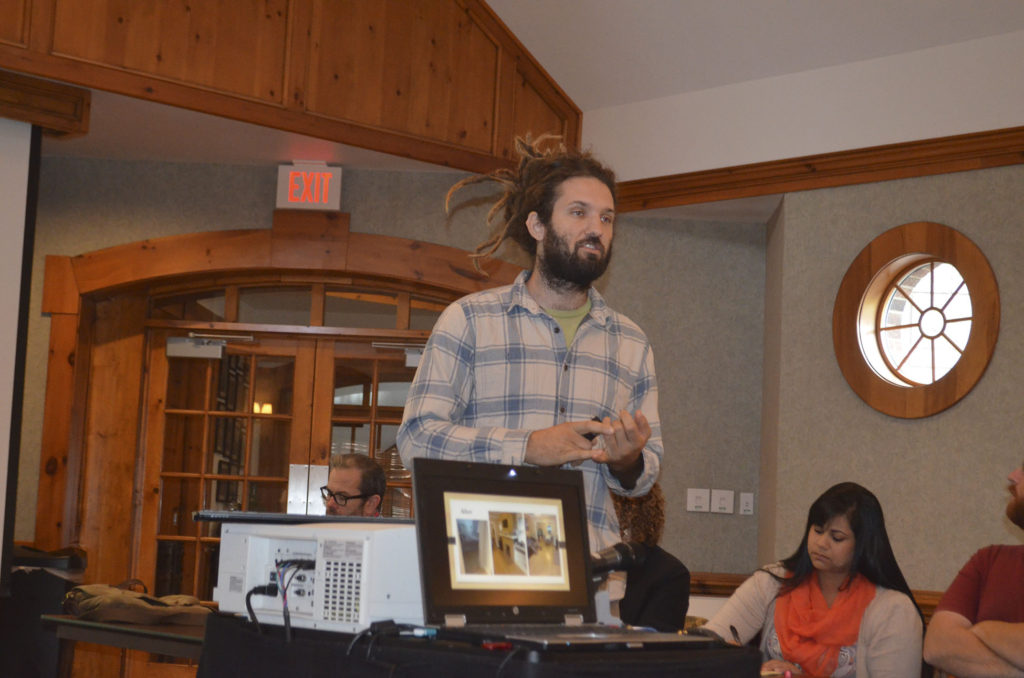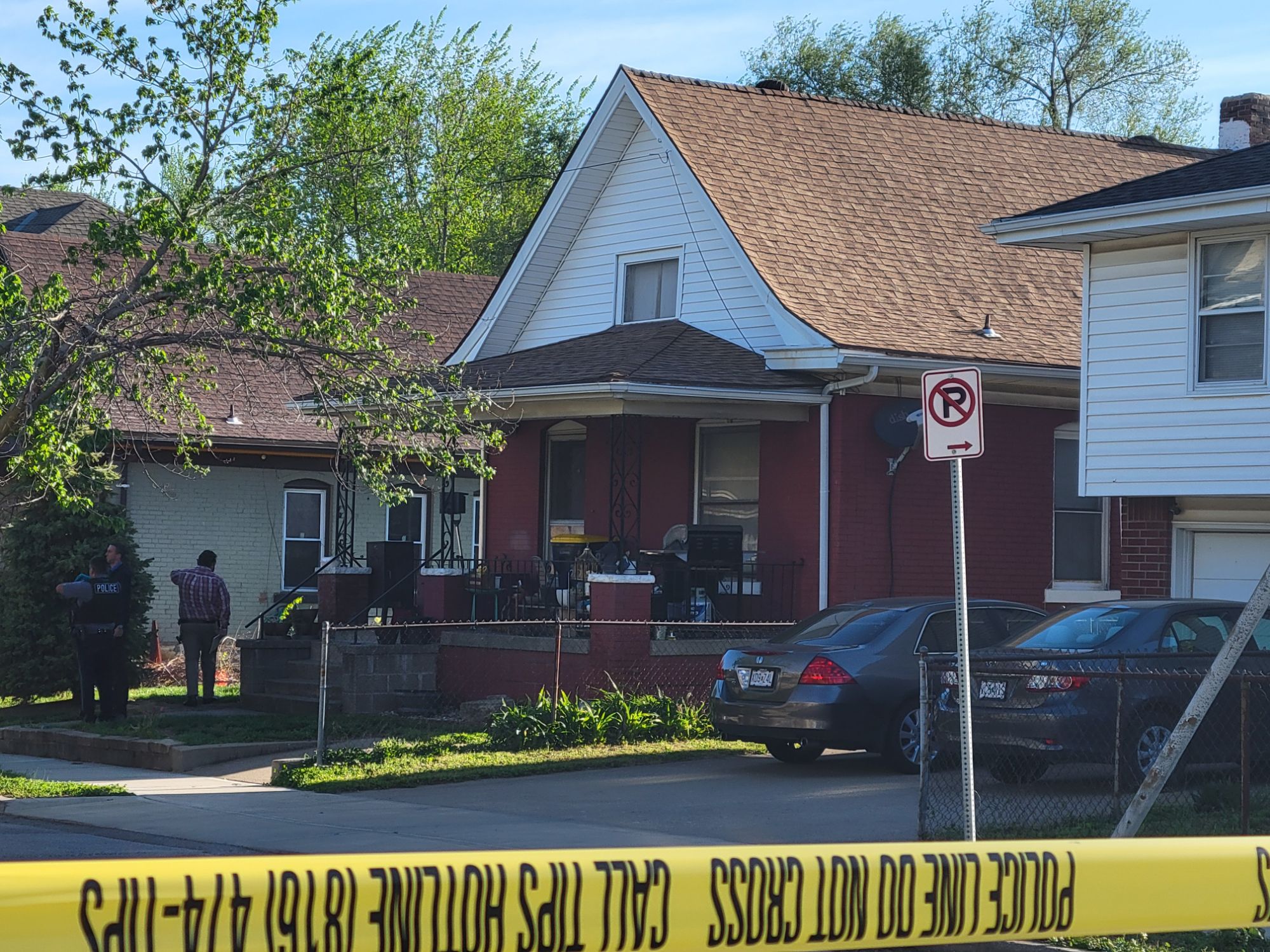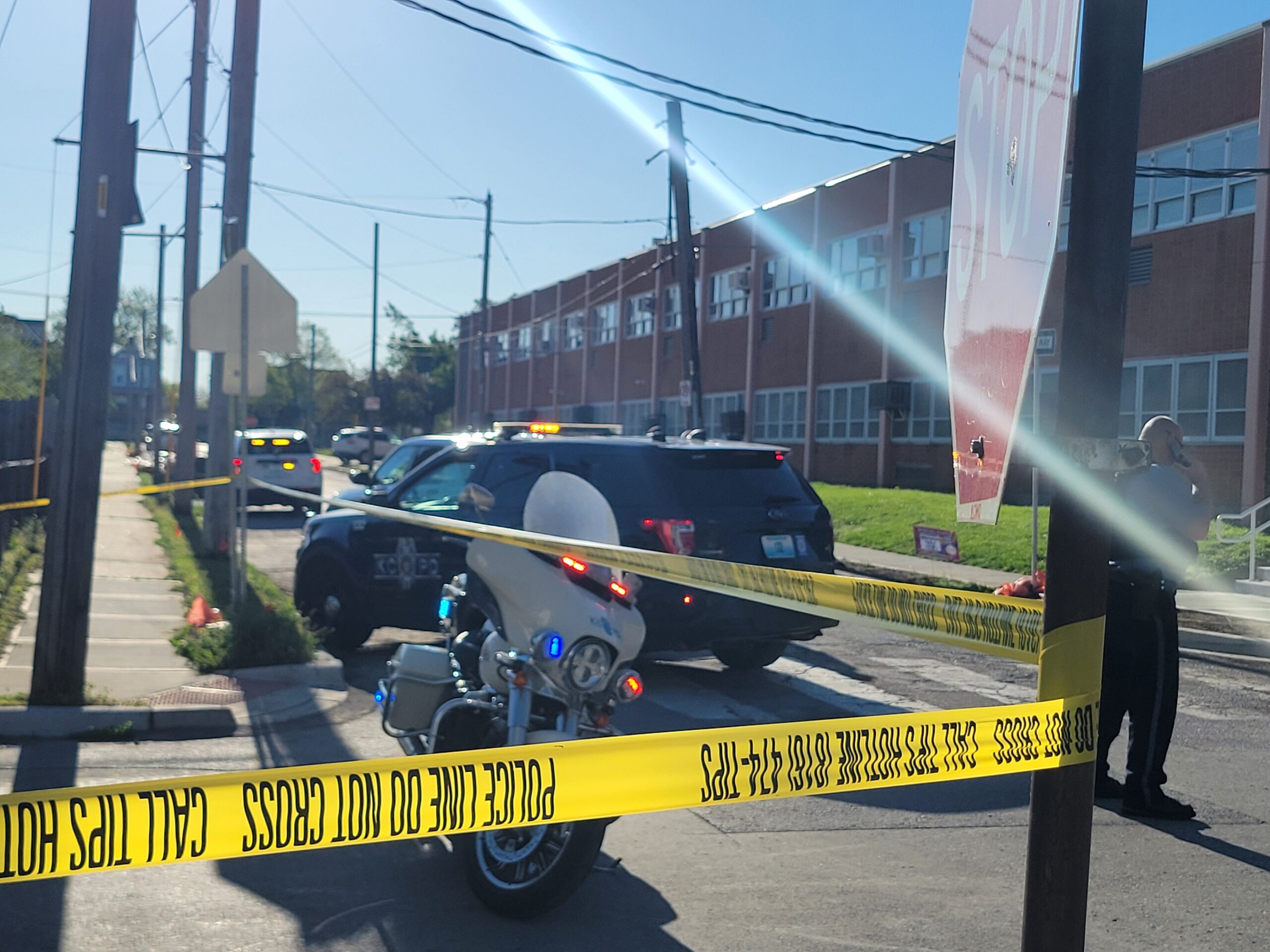
By Paul Thompson
Northeast News
November 23, 2016
KANSAS CITY, Missouri – What’s the best way to build community relationships in the urban core? The stakeholders behind Jerusalem Farm – a Catholic intentional community based in the Historic Northeast – are pursuing one method of sustaining vibrant urban communities: through service, sustainable living, and home repair.
Jerusalem Farm Project Director Jordan Schiele attended the Northeast Alliance Together (NEAT) general meeting on Thursday, November 17 to inform the community about the latest endeavors undertaken by the organization to better area neighborhoods. Guided by the organization’s four cornerstones (prayer, community, service, and simplicity), Jerusalem Farm accomplishes that goal in part by committing resources and volunteer hours towards home repair projects in the community. The faith-based organization utilizes all-volunteer labor for their projects, only charging homeowners for the cost of materials. Since most of the homeowners assisted by the home repair program can’t afford to pay those costs up front, Jerusalem Farm allows clients to create their own installment plans to pay back material costs.
“We’re fixing houses, but we’re also trying to build community and relationships,” said Schiele. “Some homeowners pay us $10 per month, and some pay us $100.”
Schiele noted that the organization runs on an annual budget of $150,000, roughly 70% of which is actually collected from Jerusalem Farm volunteers. The organization charges $300 in participation fees for volunteers to come in for one of roughly 14 annual group weeks. The volunteers then spend that time working on home repair projects in the neighborhood. According to Schiele, the organization completes about 40 home repair projects every year, and will keep doing so as long as they have a steady stream of helping hands.
“As long as we have volunteers coming for each of our group weeks, we can continue,” said Schiele.
Schiele added that Jerusalem Farm does not handle electrical or HVAC work, and that the organization’s staff is equipped to deal with only minor plumbing issues. Dangerous roof repairs are occasionally contracted out as well, though the majority of other projects are led by staff and volunteers. According to Schiele, home repair work is typically held through the winter, though it’s expected to pick back up in early 2017.
“It’s usually about a six-month waiting list,” said Schiele. “Some projects are on a hold until it becomes springtime.”
Another way that Jerusalem Farm has reached out to the community is through the development of Neighborhood Accountability Boards (NAB) designed to settle neighborhood issues amicably, without having to involve city staff. Jimmy Thomas, an AmeriCorps VISTA representative, has been housed at Jerusalem Farm with the goal of getting NAB’s up and running in the Northeast.
“Neighborhood Accountability Boards are a vehicle for facilitating restorative justice,” said Thomas. “It brings together people in the community to address issues in the community.”
To exemplify the need for such a community board, Thomas told a story about an individual who accidentally left a fire smoldering in their back yard. Instead of coming straight to the source and alerting them of the issue, a neighbor instead called the police, leading to an officer coming to their door. Thomas hopes that a Neighborhood Accountability Board can create a level of engagement between neighbors that will allow them to approach each other more directly with questions or concerns. The first NAB in the area will be housed in the Indian Mound neighborhood, which Thomas says was enthusiastic in their support of the idea.
“Having neighborhood buy-in is extremely important,” said Thomas. “Indian Mound really sought out being actively involved in this process.”
In researching Indian Mound, Thomas found that approximately 500 of the 3,000 homes in the neighborhood had open codes violation cases. Instead of reporting codes violations against each other, Thomas urged Indian Mound residents to contact him via email at jimmy@jerusalemfarm.org or by phone at (816) 694-5317 with any codes-related issues.
“If you don’t have the money to pay your fine, you additionally don’t have the money to pay a fine and repair your home,” said Thomas. “Sometimes I think people don’t want to tell their neighbors that they need help, because they’re embarrassed.”
With Indian Mound officially endorsing the NAB program, Thomas hopes that amicable resolutions can be found more often in disputes between neighbors. Indian Mound Neighborhood Association President Bryan Stalder agrees. Stalder told the Northeast News that he hopes the planned Indian Mound NAB will give area homeowners an outlet to avoid reporting codes violations against their neighbors.
“It really resonated with us, because we’ve seen some neighborhood associations really crack down on codes,” said Stalder. “A lot of residents that were the targets of those were maybe not feeling welcome in their own neighborhood. They felt that the city codes enforcement was being used against them.”
Stalder added that he’s already been impressed with the way Jerusalem Farm has stoked enthusiasm for the NAB in the neighborhood. Approximately 30 individuals have already been trained through the Center for Conflict Resolution to participate on Neighborhood Accountability Boards, though some additional work needs to be done before the neighborhood begins mediating cases. While Stalder was initially unsure whether Indian Mound would be able to gather the resources to make the idea for an NAB into a reality, he credits Schiele and NEAT Director Mary Cyr with leading the way on the project.
“Jordan and Mary Cyr basically found the resources to make that happen; I don’t get any credit for that,” said Stalder. “That’s what I want to see in our neighborhood.”
To learn more about the work being done in the community by Jerusalem Farm, visit jerusalemfarm.org.



















Comments are closed.